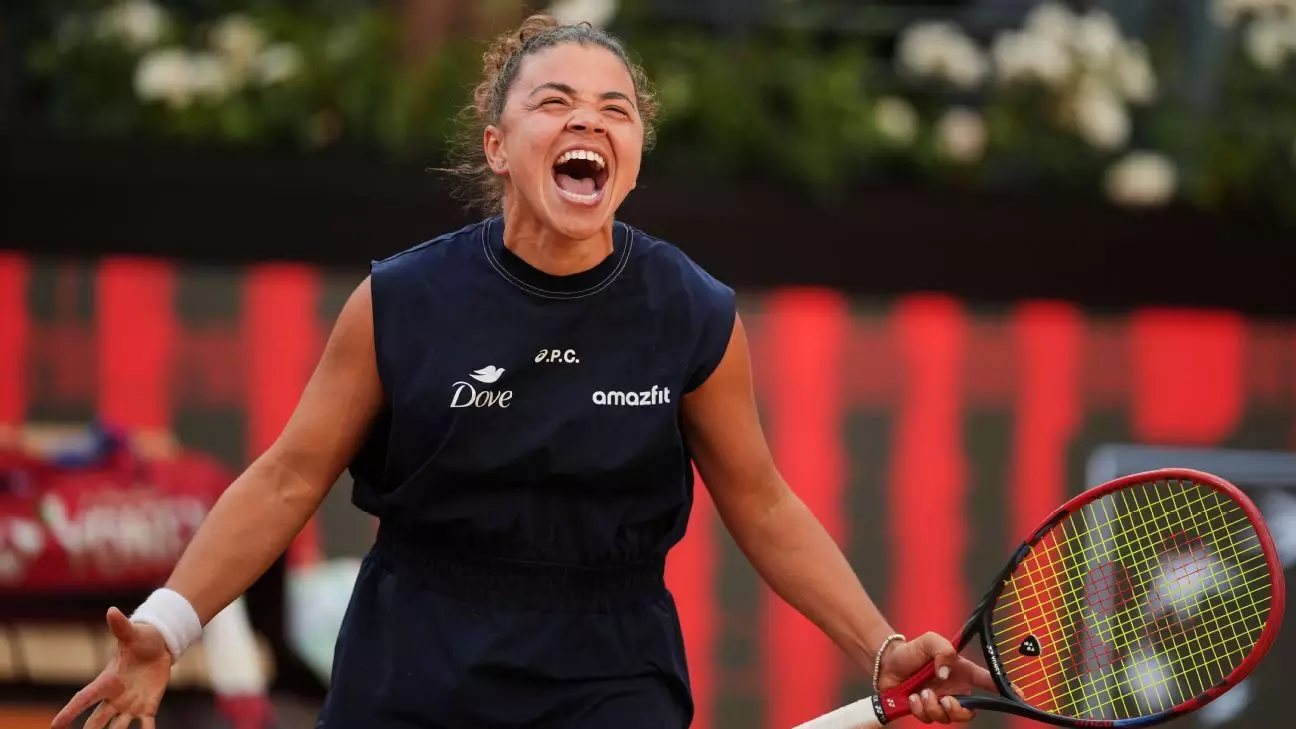In an unforgettable scene at the Foro Italico, Italian tennis star Jasmine Paolini ignited the crowd with a performance that will be etched in the annals of her country’s sports history. By defeating American Coco Gauff 6-4, 6-2, Paolini became the first Italian woman to claim the prestigious Italian Open title in four decades. The energy was palpable, encapsulating the essence of what it means to compete on home soil. Anything less would simply not suffice; Paolini harnessed the roar of the crowd, expertly maneuvering her way through a match laden with pressure.
Paolini’s victory was more than just a personal achievement; it signaled a renaissance in Italian tennis. While she enjoyed the spotlight, the weight of history was not lost on her. The last Italian woman to reign supreme in this tournament was Raffaella Reggi in 1985—a name that not many young fans would even recognize. The local men’s champion Adriano Panatta hadn’t hoisted the trophy since 1976, making Paolini’s victory a victory for an entire generation that had longed for success on this stage.
Joyful Jubilee
The climax of the match came with a powerful serve on her second championship point—a moment that embodied years of hard work, dedication, and an unwavering spirit. As Gauff failed to return the serve and the realization sank in, the arena erupted. For Paolini, this triumph felt surreal, something beyond her wildest aspirations. “It doesn’t seem real to me,” she exclaimed, capturing the incredulity of a girl raised in the shadows of the sport now basking in the limelight of victory.
Fans filled the stands, echoing chants of “Ole, ole, ole, Jas-mine, Jas-mine,” a sound that seemed to wrap Paolini like a warm blanket on a chilly evening. Her response—a heart shape made with her hands—was an homage to the unwavering support from her nation. Such moments highlight the intrinsic bond between athletes and their fans, a connection forged in shared aspirations and dreams.
The Electric Atmosphere and the Stakes Ahead
The presence of Italy’s President Sergio Mattarella underscored the national pride that Paolini ignited with her performance. As Italian flags waved vigorously in the stands, the atmosphere transformed the Foro Italico into a cauldron of emotion, fueling not only Paolini’s energy but igniting dreams for a nation eager for tennis greatness. Every shout of “Vai Jasmine!” from the crowd carried the weight of generations waiting for a champion to emerge.
With Paolini poised to climb to No. 4 in the WTA rankings following her monumental win, her journey is only just beginning. The upcoming French Open beckons, presenting a formidable opportunity for her to solidify her status as one of the premier players on the circuit. But her ascent isn’t sans challenges; a recent change in coaching from Renzo Furlan to Marc Lopez indicates her desire to enhance her prospects in the sport. The dynamics of competitive tennis mean adaptation is crucial, and Paolini appears more than ready to embrace it.
Lessons in Resilience
In stark contrast, Gauff’s challenge was a stark reminder of the sport’s cruelty. Despite being featured as a favorite and boasting her own accolades, she stumbled, racking up an alarming 55 unforced errors. Fatigue, too, played its ruthless hand; immediately following the longest match of her career—a grueling 3.5 hours—her lack of recovery showed itself, as her performance was marred by errors that ultimately cost her the chance to clinch the title.
The beauty of tennis lies in its unpredictability; one moment you are the hunter, the next, perhaps the hunted. Many young athletes juggling the pressures of expectation can learn from both Paolini’s success and Gauff’s moment of reckoning. Winning is a complex dance of talent, timing, and the ability to navigate adversity. For every well-deserved tear of joy, there reside equally heavy lessons in defeat—just as Monica Seles learned during her own storied career in 1990 when she was the last to triumph in both singles and doubles at Rome.
As the tournament unfolds and Paolini eyes another trophy alongside Sara Errani in the doubles final, the morale of Italian tennis players everywhere hangs in the balance—filled with anticipation and the longing for another chance at glory.

